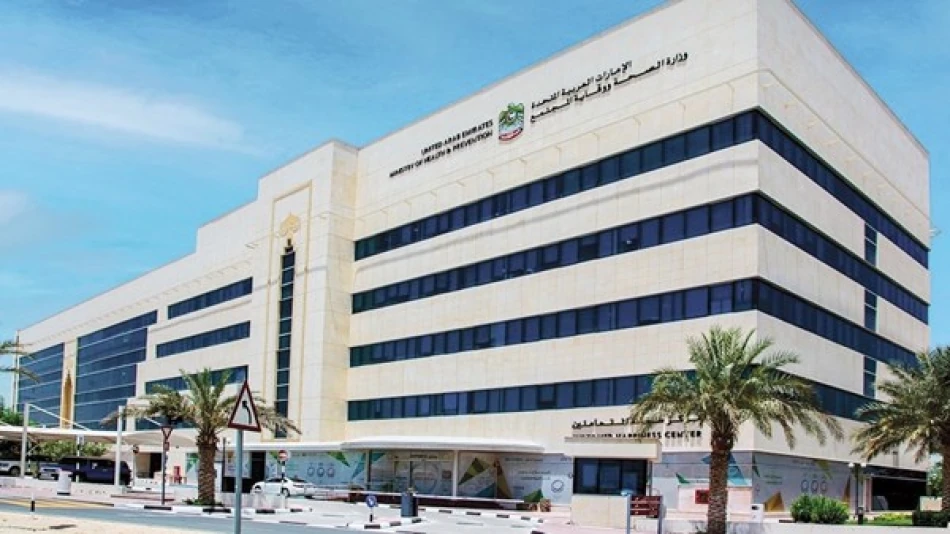
Health Ministry Unveils Cancer Evaluation Standards for Medical Entities Nationwide
UAE Mandates Multidisciplinary Cancer Teams to Cut Deaths by 30% Before 2030
The UAE has introduced sweeping new regulations requiring all hospitals treating cancer patients to establish multidisciplinary medical committees, marking a decisive shift toward internationally standardized care protocols. The move positions the Emirates as a regional leader in systematic cancer treatment reform, with authorities targeting a 30% reduction in cancer mortality rates by 2030 in alignment with WHO global action plans.
Comprehensive Care Standards Now Mandatory
Under Ministerial Decision No. 25 of 2025, issued by the Ministry of Health and Community Protection, hospitals can no longer proceed with cancer surgeries or treatments without written treatment plans approved by specialized medical committees. The regulation establishes multidisciplinary teams responsible for evaluating cases, determining treatment pathways, and ensuring patient-centered care that addresses physical, emotional, psychological, and social needs throughout the treatment journey.
The new framework requires continuous monitoring of patient progress, regular assessment of treatment responses, and modification of care plans as needed. Teams must base their recommendations on the latest global scientific evidence while ensuring patients fully understand treatment expectations, outcomes, and potential side effects.
Regional Healthcare Leadership Strategy
The UAE's systematic approach mirrors successful models implemented in Singapore and parts of Europe, where multidisciplinary cancer teams have demonstrated measurable improvements in patient outcomes. Unlike ad-hoc reforms seen in other Middle Eastern healthcare systems, the Emirates is implementing comprehensive standards that mandate coordination across all cancer care providers.
Reducing Medical Errors Through Standardization
Dr. Hussein Al-Rand, Assistant Undersecretary for Public Health at the Ministry, emphasized that the UAE ranks among advanced nations in cancer care delivery. The new regulations specifically target the reduction of medical errors through streamlined treatment pathways and elimination of duplicate services, while promoting continuous professional development for healthcare providers.
The decision reflects broader healthcare transformation efforts in the UAE, where authorities are systematically upgrading medical standards to match international benchmarks. This approach contrasts with neighboring countries that have focused primarily on infrastructure expansion rather than care protocol standardization.
Economic and Healthcare System Implications
For healthcare investors and medical institutions operating in the UAE, these regulations signal increased operational requirements but also potential competitive advantages. Facilities that successfully implement multidisciplinary teams may attract more patients seeking standardized care, while those struggling with compliance could face operational challenges.
Professional Development Requirements
The regulations mandate continuous professional development for cancer care providers, creating new market opportunities for medical education and training services. Healthcare institutions will need to invest in staff training and potentially recruit additional specialists to meet multidisciplinary team requirements.
Dr. Buthaina Bin Belaila, Head of Non-Communicable Diseases and Mental Health at the Ministry, noted that the workshop introducing these regulations represents an implementation step toward enhanced professional awareness and application mechanisms.
Alignment with Global Health Targets
The UAE's 30% mortality reduction target by 2030 aligns with WHO global cancer action plans, positioning the country within international health cooperation frameworks. This alignment could facilitate knowledge sharing with other nations pursuing similar targets and potentially attract international medical partnerships.
The systematic approach to cancer care standardization demonstrates the UAE's commitment to evidence-based healthcare policy, moving beyond infrastructure development toward outcome-focused medical practice. Success in achieving the 2030 mortality reduction target could establish the UAE as a regional model for healthcare system transformation.
Most Viewed News

 Layla Al Mansoori
Layla Al Mansoori






